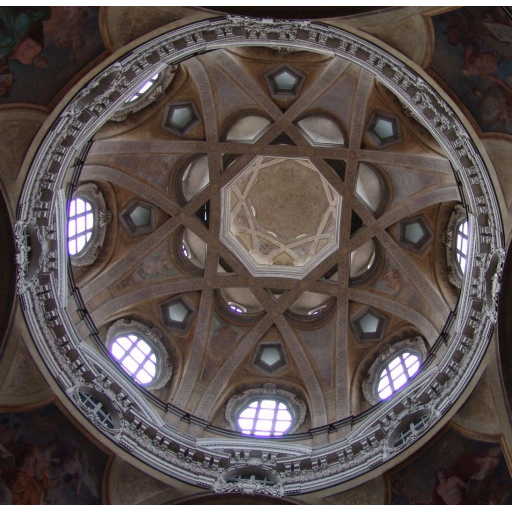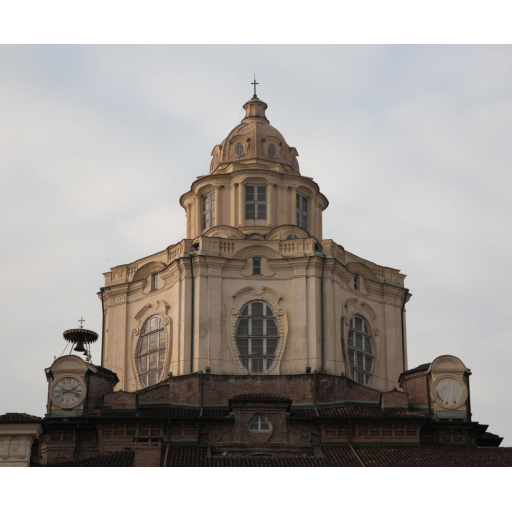Real Chiesa di San Lorenzo (Royal Church of St. Lawrence) | |||||||||||||||
|---|---|---|---|---|---|---|---|---|---|---|---|---|---|---|---|
| Primary Creator |
| ||||||||||||||
| Contributor(s) | |||||||||||||||
| Properties |
| ||||||||||||||
| Name of Work | Real Chiesa di San Lorenzo (Royal Church of St. Lawrence) | ||||||||||||||
| Production Date | 1680 | ||||||||||||||
| Production Location | |||||||||||||||
| Current Location | |||||||||||||||
| Media Types | concrete, Stone | ||||||||||||||
| General Notes | The dimensions given in this entry are my rough visual approximations. I've never found any actual dimensions published anywhere. | ||||||||||||||
Description
A relatively modest sized church, but with a huge impact upon entry. The exterior (other than the dome/cupola, is Un-designed. Entirely plain apparently due to a deliberate decision at some point to leave the facade as unimportant in relation to the other rather un-designed facades around it in Piazza Castello.
After walking through a simple rectangular loggia, you enter the one and only space of the church - a dramatic soaring domed space rising to the sky. All around the interior has a series of chapels, with the main altar naturally being on the main axis of the entry. But the chapels, the altar, and all other visual elements are completely subservient to the light and lines of the dome. One is immediately struck by the leaping wide bands of curving beams that form the complex octagonal design of the dome. The curved beams form pierced spaces at their intersections in which light flows in and around. The eight curved beams form triangles, pentagons, curved triangles, and finally the central octagon, which leads to an even higher octagon that has within it an additional eight smaller soaring beams, that form two interlocking curved squares. And in that higher space more light pours in from hidden places, giving a feeling of infinite light.
Theme
Complex, soaring geometric order.
Emotional Sum or Sense-of-life
The world is perfected. The joy of seeing complexity that is simplicity, i.e., that the rich complex vision arises from simple elements which because of their arrangement provide layers of visual thrills.
Context Information
Guarini was a priest in the Theatrine order, which was about as close as the Church came in those days to being a scientific patron. Guarini was a brilliant mathematician and geometer, who combined that scientific skill with perhaps the most complex architectural sensibility in human history. (In those days, being a priest was a major way to have access to the resources of large commissions and to be literate in language and science and math -- and Guarini apparently took great advantage of that strange confluence.
Tags
baroque, cupola, dome


